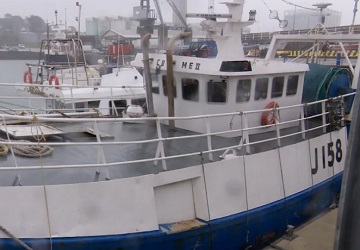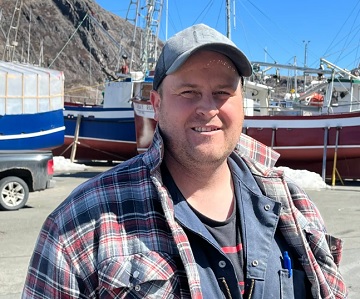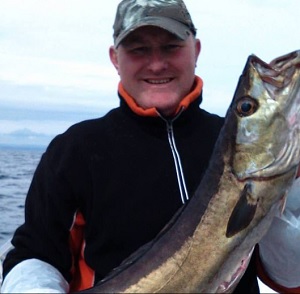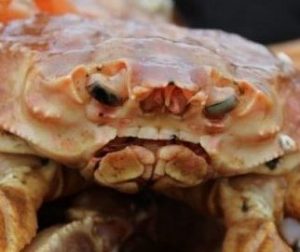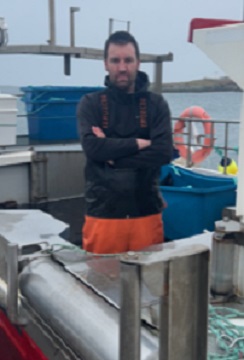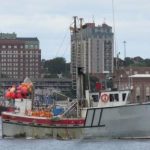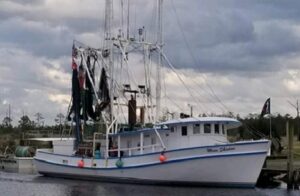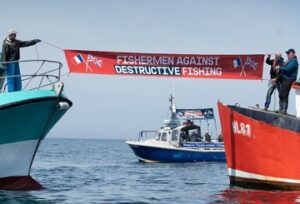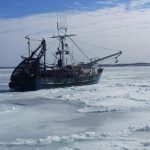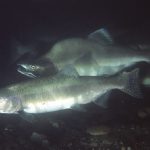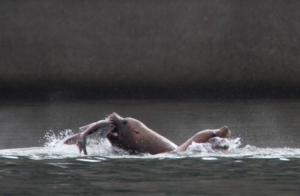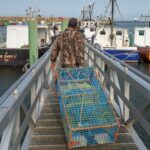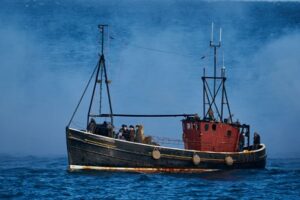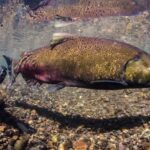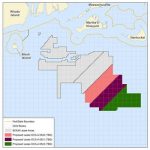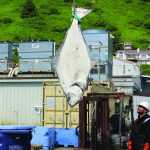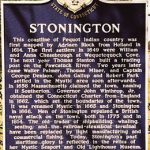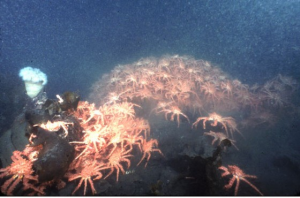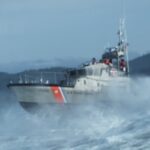Category Archives: International
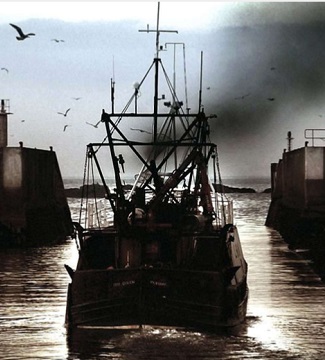
Former SNP MSP quits party over plan to ban fishing that could ‘devastate’ coastal communities
Angus MacDonald, who served at Holyrood for a decade before stepping down in 2021, is the latest figure to criticise the introduction of highly protected marine areas (HPMAs). The Scottish Government has committed to designating at least 10 per cent of the country’s coastline as highly protected in an effort to boost ecosystems. Commercial and recreational fishing would be banned in the zones as well as the harvesting of seaweed. MacDonald, who lives on the isle of Lewis in the Outer Hebrides, believes the law would be devastating to the economy of coastal communities. >click to read< 10:16
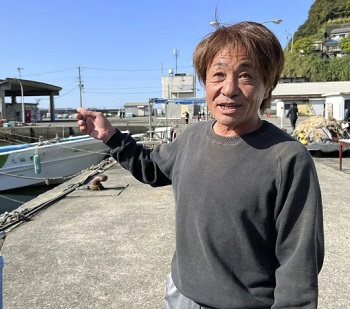
Fishermen acted fast to swarm suspect in attack on Japan’s prime minister
The fishermen who tackled the man suspected of the second attack on a Japanese politician in less than a year said Sunday that they were surprised by the lack of security for Prime Minister Fumio Kishida. Fisherman Tsutomu Konishi was watching Kishida at a campaign event at this fishing port when an object flew overhead and landed near the prime minister, Konishi said. A security officer covered the object with a bulletproof briefcase, said Konishi, 41. The fishermen swarmed the attacker. “I never thought a crime like this would happen in my hometown, which is a rather small fishing area,” Konishi, 41, said Sunday as he sipped a can of coffee at the port of Saikazaki. “I’m still shocked and stunned.” >click to read< 21:14
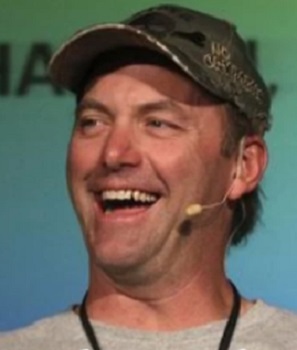
What happened to Andy Hillstrand? Where is he now?
Andy Hillstrand is a well-known television personality. His celebrity stems from his appearance in the documentary Deadliest Catch. During this time, he sailed on board the Time Bandit vessel with his brother and a crew of seamen. Hillstrand was willing to go to any length to meet the fishing quota on this expedition to catch king crabs and snow crabs. Andy Hillstrand was born and reared in Alaska with his brother Jonathan Hillstrand. They lived almost entirely at sea, learning and witnessing family trades. Andy began fishing with his brother at the age of seven. He was the third kid in a five-child family. Three of the five brothers worked together in the water. >click to read< 09:49
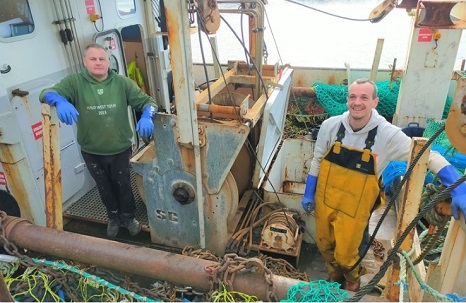
The hard life of a fisherman who wouldn’t change it for the world
Mark Ainsworth travels over 200 miles from Staffordshire to Plymouth’s Fish Quay, when he’s needed, to fish off the coast of Devon and Cornwall with experienced local skipper, Steven Walker. “Going to sea is a hard life, there are no ifs and buts,” said experienced long-term skipper, Steven Walker. Steve is used to early starts and is often accompanied by relatively new fisherman, Mark Ainsworth – helping him settle into the fishing life. Mark took up fishing just six months ago and he travels over 200 miles from Staffordshire to Plymouth’s Fish Quay, when he’s needed, to fish off the coast of Devon and Cornwall. Mark completed a Seafish course and joined Steven’s fishing boat just two months ago. >click to read< 08:18

Shrimper Design Focuses on Low Fuel Consumption
Designers at Damen Maaskant have done some serious homework and developed new design intended to support operators in tropical shrimp fisheries in staying profitable. The Damen Shrimp Trawler 2607 is a brand-new design, developed as a simple basic standard vessel, to fish (sub)tropical shrimp, and to be a safe and robust vessel with straightforward maintenance and serviceability – and with the focus on low fuel consumption. Photos, >click to read< 19:51
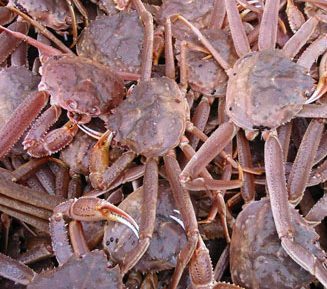
Record-low quota caught as Bering Sea Tanner crab season wraps up
The fishing season has ended for Bering Sea Tanner crab. Crabbers caught the record-low quota of two million pounds just before the end of March. Seventeen vessels went out for tanner across the fishery’s east and west districts, said Ethan Nichols, the assistant area management biologist with the Alaska Department of Fish and Game in Unalaska. “Some boats caught their quota in the fall. Some caught it in the spring,” said Nichols. “Overall, the fishery performance was pretty good. ”Vessels were targeting and retaining crabs that were smaller than the industry-preferred size of five inches, but still perfectly legal to retain,” said Nichols. “And that was somewhat to make up for the lack of snow crab coming out of the Bering Sea.” >click to read< 11:29
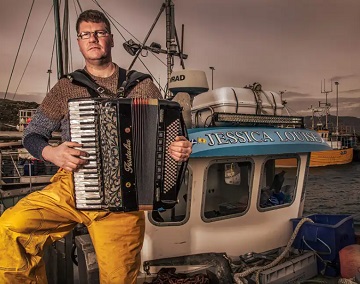
Fishermen in protest song comparing proposed fishing ban to Highland Clearances
Two fishermen have written a protest song against plans to ban fishing in 10% of Scottish waters, saying they consider the move one of the biggest risks to rural life since the Highland Clearances. Donald MacNeil, 64, said fishing has been his “whole life” and it supports his family as well as the community he lives in on Vatersay in the Outer Hebrides. He has teamed up with fellow fisherman Angus MacPhail, the founder of Celtic band Skipinnish, to make his recording debut in the track The Clearances Again – a stand against plans to introduce Highly Protected Marine Areas (HPMAs). >click to read< 10:44
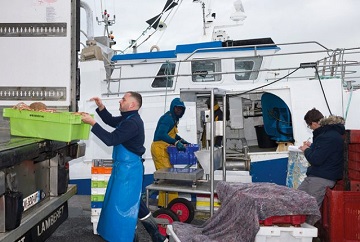
The European Union’s Plan to Ban Bottom Fishing is Causing Widespread Outrage
The plan, which seeks to ban bottom trawling in protected areas, has caused widespread demonstrations, disruption of work in ports, and the launch of a protest movement by fishermen in France called “Blocked Ports”. Although the Commission’s proposals do not represent new legislation, and will not be implemented soon in a way that satisfies some environmental protection non-governmental organizations, they have been met with strong opposition from a number of member states. There was outrage in Germany, Spain, Portugal, Italy, Ireland and Denmark, who feared the plan would endanger the entire fishing industry. The “Marine Action Plan” for sustainable fishing was announced on February 12, and it includes initiatives to phase out deep-sea trawling in protected areas. >click to read< 08:51
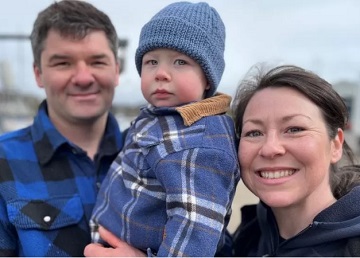
Fishing could be finished for me and my young son
Callum Elliott is a fisherman on the west coast of Scotland, but he’s worried about the future for himself and his 18-month-old son Angus. His village of Tarbert in Argyll is built around the harbour and its small boats like Callum’s trawler Sea Spray. Callum, 37, comes from a farming background but felt the calling of the sea from a young age. Ten years ago this week he took out a six-figure bank loan to buy his small trawler but feels there’s now too little support for traditional fishing communities. Cabling from wind turbines, seaweed farming and the presence of military bases have all heaped pressure on the same marine space meaning it’s becoming squeezed. Photos, >click to read< 19:07
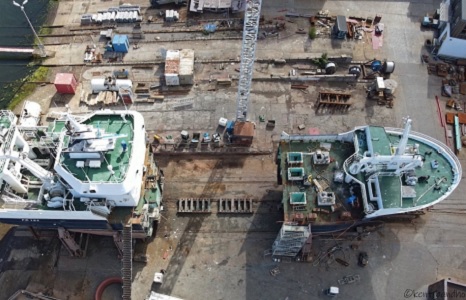
Trawler becomes Crabber/Seiner
Former Scottish pelagic trawler Unity, sold last year to Norway, has gone through a major transformation to become advanced seine netter and crabber K. Nyvoll – which include being lengthened from 38 metres to 53.20 metres. K. Nyvoll was built in 2005 as Julianne at the Simek yard in Flekkefjord for Lunar Fisheries of Lunenburg in Nova Scotia. After some years fishing in Canada, it was sold in 2008 to Norwegian company Asbjørn Selsbane and renamed Julianne to operate as a trawler and seine netter. A few years on, it was sold in 2013 to Unity Fishing in Scotland and was used for pelagic fishing. A further change of hands took place last year when, LHN Fiskeri AS, based on the island Godøya near Ålesund acquired the vessel – and they had some big plans. Photos, >click to read< 18:38
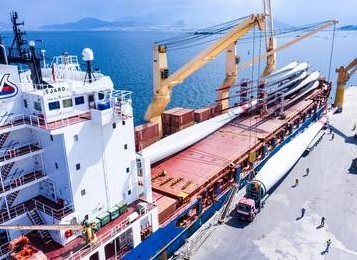
US Coast Guard Warns on Vessels Importing Wind Turbine Parts
The US Coast Guard Inspections and Compliance Directorate has released Marine Safety Information Bulletin 04-23 to advise mariners that an increasing number of break-bulk and retrofitted bulk carriers are arriving in the U.S. carrying wind turbine parts stowed in a manner that substantially limits visibility from the navigation bridge. In many cases, the vessels have been temporarily exempted from compliance with SOLAS 1974 Chapter V, Regulation 22, by their flag administration even though the vessel’s intended voyage requires substantial transit in restricted and congested waterways. The SOLAS requirements specify: >click to read< 14:37
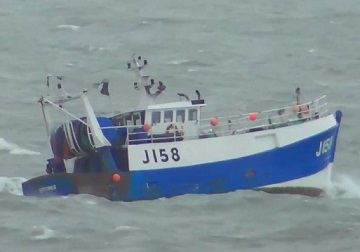
L’Ecume II recovery operation to start as soon as possible states officials
Herbosch-Kiere Marine Contractors Ltd, a specialist marine contractor, has been commissioned to raise the wreck of L’Ecume II. Herbosch-Kiere is experienced in wreck raises and they are familiar with Jersey, having previously worked on major marine infrastructure projects in the Island. Following the dive survey and exploration, the wreck raise will require a fair-weather window of five days to go ahead. Teams involved will be continually assessing the conditions to determine when the lift can happen. Once the wreck has been raised, it will be transported to La Collette where it will be stored at a secure location, under States of Jersey Police supervision. >click to read< 13:30
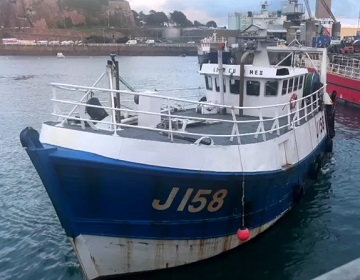
L’Ecume II sinking: Work to raise fishing boat to begin shortly
Divers are to begin an operation to raise the wreck of a fishing trawler that sank off the coast of Jersey. A specialist dive team is due to arrive later this week, the government said. It said they will initially be carrying out a dive survey “over the next few days” before the lift is expected later in April. The preliminary work will also involve an exploration of the wreck and collection of debris from the surrounding area. Authorities said the wreck of the L’Ecume II will be taken to La Collette, where it will be stored under police guard. >click to read< 08:54
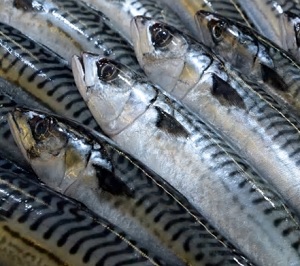
FFAW wants mackerel fishery re-opened
On Thursday, Mar. 30, 2022, the Department of Fisheries and Oceans Canada (DFO) issued a release announcing there would be no directed commercial or bait fishing for southern Gulf spring herring and the closure of the Atlantic mackerel commercial and bait fisheries in Atlantic Canada and Quebec. Now in 2023, Fish, Food, & Allied Workers (FFAW) is calling on the government to reopen the Atlantic mackerel fishery, stating that Newfoundland and Labrador communities shouldn’t bear the burden of this decision. “The biggest problem is that the fishery was closed when it should not have been,” said Courtney Glode, Communications Officer with FFAW. The U.S.A. announced in March that they will proceed with the commercial fishery in 2023, on the East Coast stock shared with Canada; however, an announcement on whether or not the moratorium will be lifted in Canada has not yet been made. >click to read< 10:07
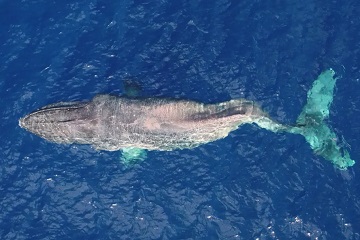
Ship Strikes: Thousands of whales are being killed by passing ships. Can we save them?
A collision with a vessel is one of the main threats to whales and if the whale does not die on impact, it is usually only a question of time. In Moon’s case, Wray knows she made the 3,000 mile migration to Hawaii. “We’re actually hoping that she has passed,” says Wray. She has not been seen since December. With potentially thousands of whales hit every year, and with the number of ships rapidly increasing across the globe, the problem is only getting worse. But as the recent UN high seas treaty shows, there is increasing political will to protect the world’s oceans and their inhabitants. The question is whether it is even possible to save the whales from dying at the bows of ships. New technology suggests yes – but it’s going to take all hands on deck. >click to read< 08:01
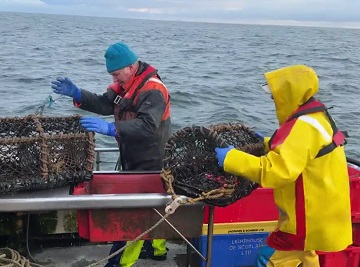
A Crab’s Eye View of Brexit
Of all the vexing regulations that Brexit has thrust upon Paul Knight’s shellfish exporting business, the one he finds most absurd is this: Before he can deliver his crabs and lobsters to France and Spain, they must be certified by a veterinarian. Before Brexit that was relatively simple. But now, because of all the extra paperwork required, Alastair Mackie, the Dignity Jay’s skipper, must deliver his shellfish earlier. So he will finish fishing by 11.30 a.m., rather than 5 p.m., to get his catch on a ferry from the Isle of Mull to Oban on the Scottish mainland. Each week, the early finish cuts one day’s catch in half. When it took full effect, in January 2021, Brexit ended an era of easy trade with his markets in continental Europe. >click to read< 12:34
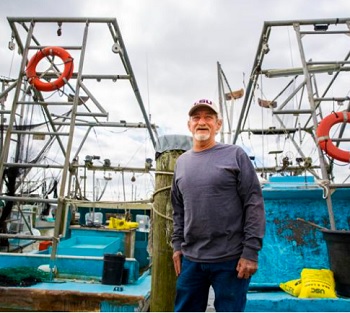
As seafood sales rise for Lent, Louisiana shrimpers say their industry is in trouble
With Lent elevating sales of crawfish, fish and shrimp across Louisiana, many local fishermen and shrimpers say they aren’t benefitting. “We’ve been here a long time, and yet we’re just going to get shoved out of the way. When importers come in and start buying cold storage and start buying infrastructure, we’re going to lose our way of life, and Louisiana is going to lose a lot. They’re more at stake than anybody because we’re known for our seafood. That’s why people come to Louisiana is for our seafood and for our culture,” said Acy Cooper, the president of the Louisiana Shrimpers Association. >click to read< 12:02
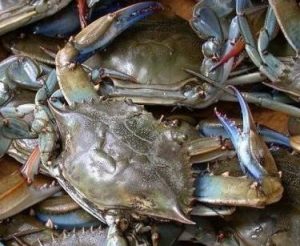
‘They are serial killers’: How blue crabs are devastating the fishing industry in southern France
For the last three years, the Canet-en-Roussillon lagoon, in southern France, has been under invasion from a blue crab which devours almost everything in its path. Scientists are trying to find the cause of the invastion, but for the time being the only way to keep the numbers under control is fishing. Since the crab tastes so good, local restaurant owners are considering putting it on the menu. Since the invasion began in 2020, the two friends (Yves Rougé and Jean-Claude Pons) have meticulously noted down the number of blue crabs they have caught. “We started seeing them in 2017, it’s been five or six years since they’ve been here,” explains Jean-Claude Pons. “We used to see one or two, then ten, and then it was kilos every day.” >click to read< 10:07
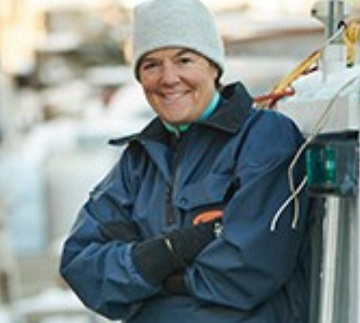
Deadliest Catch’s newest star: A Q&A with Maine’s Linda Greenlaw
The newest season of Deadliest Catch will feature a Maine connection, with popular fisherman, author and reality TV star Linda Greenlaw joining the cast. Q: You’re known to most Mainers and wider audiences as a fisherman of swordfish and lobster. Did you find transitioning to crab fishing difficult for “Deadliest Catch?” A: Transitioning to the crab fishery was not too difficult for me – I have been involved in the offshore red cred fishery here in New England and have been fishing fixed gear on and off since I was a kid. The difference was primarily hauling single, massive pots as opposed to trawls of smaller traps. Finding crab was the biggest challenge. This was my first experience with Bairdi crab and also my first trip on the Bering Sea. >click to read< 16:21
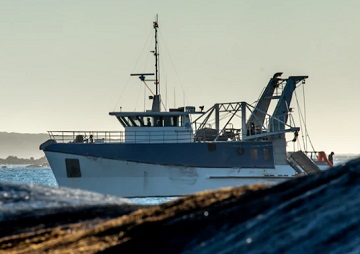
Greek immigrant and pioneering fisherman Kon Paleologoudias’s legacy in Venus Bay and Port Kenny
When Konstantinos Paleologoudias left Greece as a fresh-faced 18-year-old fitter and turner in the 1950s he began an adventure that would help shape two small towns 14,000 kilometres away on South Australia’s west coast. Konstantinos, also known as Kon Paul, established a fish processing factory at Port Kenny and while the size of the prawn boat fleet in Venus Bay has fluctuated, the three remaining licensed boats are all owned by the Paleologoudias family. More than 70 years since Kon emigrated, his feats have been recognised in Venus Bay, with the naming of a large sculpture of a pelican, Pauly. Photos, >click to read< 07:45
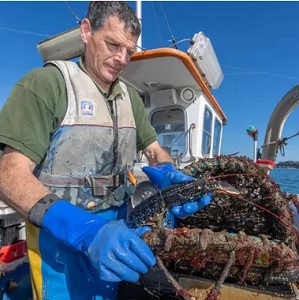
Not for the pot: how ‘V-notching’ lobsters may help save them
Cornishman Ned Bailey has caught and returned ‘notched’ lobsters for years as part of a broader effort to preserve stocks. But many fishers do not. He tosses out stray crabs, several starfish and a squirming conger eel. Every so often he pulls out a lobster: if the carapace is over 90mm (3.5in) long, he keeps it; if not, it’s thrown back into the sea, in line with regulations. But today, one lobster, the underside of its tail bursting with clusters of inky-black eggs, is kept aside. This is a berried hen, a pregnant female, carrying about 20,000 eggs. Bailey cuts a small “V” into its dappled royal-blue and yellow tail before gently laying the lobster back in the water. Now she is marked as illegal for others to land – and with any luck her reproductive potential is secured for a few more years. >click to read< 09:39
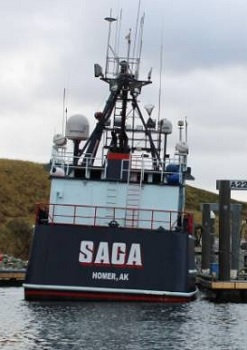
Why would a pediatric neurosurgeon go crab fishing in the Bering Sea?
The fears and anxieties associated with my role as a pediatric neurosurgeon are those related to my patients’ lives I have put at risk during the past 20 years. The last decade presented an opportunity for me to learn something from the commercial fishing industry about life circumstances where we experience fear and anxiety. In 2009, I was privileged to work on the F/V Miss Colleen, a commercial salmon fishing gillnet boat in Bristol Bay, Alaska. Then, in the fall of 2019 and winter of 2021, I was fortunate to be a deckhand on the F/V Saga, a commercial crab fishing boat in the Bering Sea profiled on the Discovery show Deadliest Catch. Both experiences had a profound effect on me and taught me how to switch from a “my life is at risk” mentality to one focused on preventing mistakes from happening through teamwork and effective communication. It occurred to me that there is no room for error in both the health care and commercial fishing industries. Both giving a patient the wrong medication or going overboard in rough seas can lead to death. >click to read< 18:08
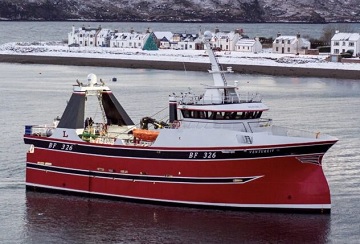
Venture IV – Trawler Designed for Western Scottish Waters
Venture II Fishing Company in the UK recently took delivery of a new trawler built for operations off Scotland’s west coast. Designed by Macduff Ship Design in compliance to Maritime and Coastguard Agency and Bureau Veritas guidelines, Venture IV is the fourth boat built by the same yard for Venture II company owner and boat skipper Mark Lovie. Construction of the hull and the wheelhouse was undertaken in Poland by Finomar Shipyard while final outfitting took place in Scotland. >click to read< 07:55
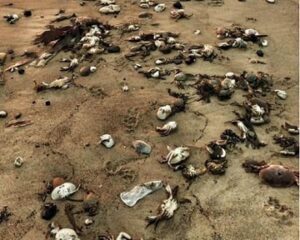
Scientists who investigated crab and lobster die off ‘surprised’ politicians have ‘questioned their integrity’
The 13-person panel of experts conducted a review of all the evidence gathered during a government-run investigation into the deaths of the crustaceans, which began washing ashore between Hartlepool and Whitby in October 2021. The panel said it was “unable to identify a clear and convincing single cause” but the “most likely” explanation is an unknown disease or parasite killed the crustaceans, after it was convened by the Department for Environment, Food and Rural Affairs’s (Defra) Chief Scientific Advisor Professor Gideon Henderson. The findings have been disputed in recent weeks by local fishermen and a number of Labour MPs, with Geraint Davies claiming it was “farcical” to suggest a “phantom pathogen” caused the deaths. >click to read< 09:05






